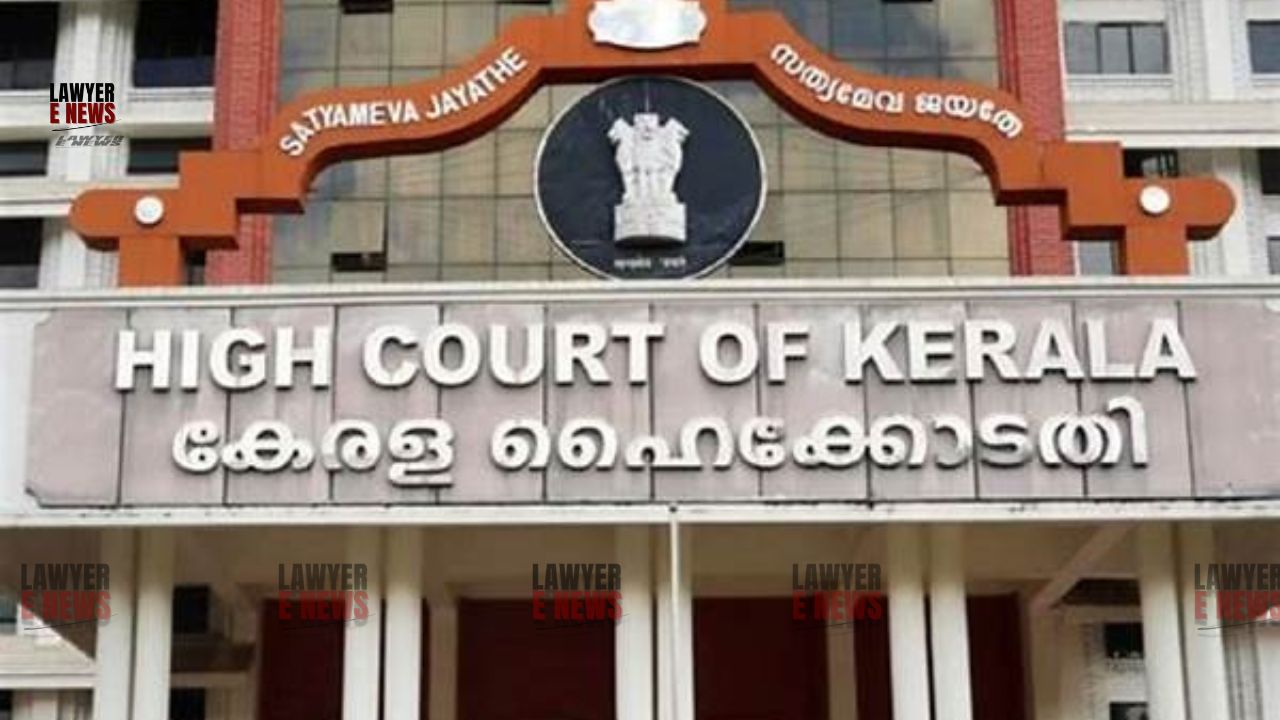-
by Admin
15 February 2026 5:35 AM



“Ordinarily, a workman whose termination is found to be illegal is entitled to full back wages unless the employer proves gainful employment during the period of dismissal.” – Kerala High Court
Kerala High Court dismissed the appeal filed by The Arpookara Service Co-operative Bank Ltd. against the award of full back wages and monetary benefits to a dismissed employee, T.M. George. A Division Bench comprising Hon’ble Mr. Justice Anil K. Narendran and Hon’ble Mr. Justice Muralee Krishna S. upheld the decisions of the Co-operative Arbitration Court and a learned Single Judge, reiterating the employer's obligation to prove gainful employment during the period of suspension or dismissal.
The Court ruled that the respondent, whose suspension and dismissal were found to be illegal, was entitled to full salary and other monetary benefits for the period from October 30, 1998, to April 8, 2003, as the employer failed to produce any evidence of his gainful employment during the said period.
The High Court emphasized that the burden of proof rests upon the employer to establish that a dismissed or suspended employee was gainfully employed during the disputed period. It observed:
"If the employer wants to deny back wages to an employee, it is their duty to specifically plead and prove that the employee was gainfully employed during the intervening period." [Para 13-14]
Since the appellants failed to discharge this burden, the Arbitration Court's award was upheld.
The respondent, T.M. George, worked as the Secretary of the appellant bank since 1969. He was suspended on October 30, 1998, and later dismissed on allegations of misconduct, including financial mismanagement.
An inquiry found 7 out of 9 charges proved, leading to dismissal.
The respondent filed appeals before the Joint Registrar of Co-operative Societies, which led to his reinstatement on April 8, 2003, by an Administrator appointed after the Board of Directors was superseded.
After the Board was reinstated (following court orders setting aside the supersession), disciplinary proceedings were restarted. These were challenged by the respondent in various forums, resulting in protracted litigation.
The Co-operative Arbitration Court, in 2017, ruled that the dismissal and suspension were illegal, awarding full back wages and monetary benefits. This award was affirmed by the Arbitration Tribunal and later by a learned Single Judge of the Kerala High Court.
The appellant bank filed the present writ appeal challenging the learned Single Judge’s decision.
Legal Issues at Hand
Entitlement to Back Wages:
The primary issue was whether the respondent, whose dismissal was found to be illegal, was entitled to full back wages during the suspension and dismissal period.
Employer's Burden of Proof:
The secondary issue concerned whether the employer had discharged its burden of proving that the respondent was gainfully employed during the relevant period.
The Court, in its analysis, relied on several authoritative precedents that establish the principle of reinstatement with back wages in cases of illegal termination or dismissal:
Hindustan Tin Works Pvt. Ltd. v. Employees [(1979) 2 SCC 80]:
The Supreme Court held that “a workman whose service has been illegally terminated would be entitled to full back wages except to the extent he was gainfully employed during the enforced idleness. That is the normal rule.”
Deepali Gundu Surwase v. Kranti Junior Adhyapak Mahavidyalaya [(2013) 10 SCC 324]:
This case reaffirmed that reinstatement must restore the employee to the position they would have been in but for the illegal action, including entitlement to full back wages, unless the employer proves alternate employment.
Pradeep v. Manganese Ore (India) Ltd. [(2022) 3 SCC 683]:
The Supreme Court reiterated the employer’s obligation to prove gainful employment to deny back wages.
Secretary, Perinthalmanna Taluk Co-operative Educational Society v. M. Sethuratnam [2018 (2) KLT 99]:
The Kerala High Court held that denial of back wages requires proof of alternate employment by the employer.
In this case, the Court noted that these precedents establish a clear burden of proof on the employer to demonstrate gainful employment, which was not discharged by the appellants.
The High Court found no jurisdictional error or legal infirmities in the decisions of the Arbitration Court, the Arbitration Tribunal, or the learned Single Judge. The key points of the Court's reasoning were:
The respondent submitted an affidavit (Annexure R1(g)) before the Arbitration Court stating he was not employed during the period of suspension and dismissal. The appellants neither rebutted this affidavit nor presented any evidence of the respondent’s alternate employment.
The Court noted that appellate jurisdiction in writ matters is limited to instances of jurisdictional errors or patent legal infirmities. No such issues were identified in the judgments under challenge.
The Court reiterated that, under precedents such as Hindustan Tin Works and Deepali Gundu Surwase, an employee whose termination is illegal is entitled to back wages unless the employer proves otherwise.
The Court concluded that the Co-operative Arbitration Court’s award was valid and enforceable, as the appellants failed to discharge their burden of proof.
The High Court dismissed the writ appeal and upheld the Arbitration Court’s award granting full back wages and monetary benefits to the respondent for the period from October 30, 1998, to April 8, 2003. The ruling underscores the principle that illegal termination or suspension ordinarily entitles an employee to full back wages unless the employer proves alternate employment.
Date of decision: January 7, 2025
